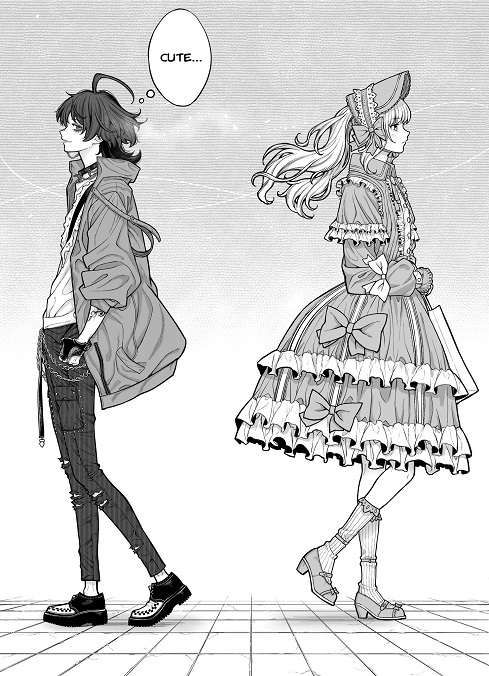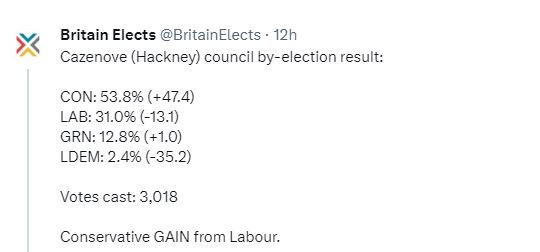I was today years old when I learned the dancer in the music video for Kate Bush’s Running up that Hill, Misha Hervieu, is a trans woman.
LGBT
Lesbian, Gay, Bi, Trans & genderqueer matters
How can you be anything if you can’t be yourself?
If you have ten spare minutes, this extract from the 1977 queer documentary Word Is Out: Stories of Some of Our Lives featuring theatrical actress Pat Bond is well worth watching:
Pat Bond tells about how she joined the army during World War II because she was in love with a girl who wouldn’t fall in love with her, how widespread gay and lesbian soldiers actually were at the time, semi-tolerated when the army still needed them. She also talks about what happened when they weren’t needed anymore, the witch hunts that kicked everybody suspected of being queer out with a dishonourable discharge. She also tells about having to fit into a certain role even as a lesbian, that you had to be either butch or femme and how that was both a comfort (as long as you knew the rules you could act the part) and how she never felt herself fitting in her role. Slightly nostalgic as well for when being lesbian meant being part of an incrowd, different from the norm, something she felt had disappeared with the greater openness of the seventies. But she wouldn’t go back: “how can you be anything if you can’t be yourself”?
Prescient too in worrying that the new tolerance might not last. With the twin disasters of the AIDS epidemic and the Reagan presidency only few years away, it’s hard not to look at her worries as prophetic. The eighties really did saw a backlash against queer rights.
Yes of course being lesbian is more queer than cross-dressing
Even without context, saying that heterosexual romance story is somehow more queer than a lesbian love story just because the bloke in it cross-dresses is bizarre:
“why can’t it be two girls
” THE POINT IS ABOUT BREAKING GENDER NORMS!!! Y’ALL ARE JUST ENFORCING GENDER NORMS BY SAYING THAT!!! DID YALL FORGET WHAT IT MEANS TO BE QUEER!!! THEY ARE QUEER

In context doesn’t get any better, the person here talking about Company and Private Life, a newly licensed manga about two office workers who dress up on the weekend: she as a punk girl, he in Lolita dresses. As the title hints, it’s about that contrast between how people dress and behave at work and in their private lives. It’s a nice little series by Kanazawa Shinnosuke about two co-workers who accidentally meet outside work when they literally run into each other in their weekend dress. Not knowing who the other “really” is, they strike up a friendship as their alter egos. So far it’s not really been romantic, at least in as far as it has been scanlated, but they did reveal themselves to each other in the latest episodes.
Is this a queer story?
Yes, in so far as it has the two leads being more comfortable in gender non-conforming clothing. She in butch punk outfits (torn jeans, t-shirts, leather jacket, gothic make-up, shortish hair), he in Lolita fashion (frilly dresses, blonde wig). But that’s all it has so far. There isn’t anything there that shows that dressing up this way is more than just a hobby for either of them, something they can do in their free time with no desire to do it full time. Ultimately this is still a hetero love story, not really a queer one, right?
The gothic lolita wearing Kanade-san fits in a long tradition of manga and anime boys cute and pretty enough to pass effortlessly as girls when they put on a dress, for whom putting on a dress is driven by little more than wanting to wear cute clothing. It’s very rare that any of these characters comes even close to being trans; dressing up is just a hobby, not something that they want or need to do to become their proper gender. Punk girl Aki-san too isn’t dysphoric or wanting to be seen as a man; she just likes her look and to be honest, you’d probably perceive her as female if you met her in real life. She looks a bit androgynous but not that much.
To think then that this is somehow more queer than having either be trans or having it be a lesbian romance (or both!) is just objectively wrong. Thinking that it’s groundbreaking to have a “feminine boy not be gay or trans” is absurd when these are actually the norm in manga and anime. Getting upset that some people would rather have a trans or lesbian romance instead is just plain silly. spend your energy on better things.
Transphobia costs you votes, UK edition
There was a local byelection in Hackney yesterday, necessary because one of the existing Labour councillors had been elected as mayor there earlier. And that election had been necessary because the existing mayor turned out to be shacking up with a convicted pedo. A bit of a mess already therefore, which makes it weirder that Hackney Labour decided to double down on the weird sex pest angle by putting forth a transphobe as candidate who compared trans women to actors doing blackface. When that surfaces, she got suspended, then unsuspended again just the day before the election. How that worked out? About as well as you could expect.

It shows once again how transphobia plays on the doorstep: badly. Ordinary voters just do not care for the sort of obsessive weirdo who likes ‘womanface’ memes. It’s the hight of Labour arrogance to think that they could stand this canidate when the Tories had as theirs a well respected ex-LibDem councillor with actual ties to the local community. And with Labour nationally also seemingly embracing transphobia, this may be a sign that the parliamentary elections next year may be a lot closer than they expect…
Good Christian Music
Christian music doesn’t have to be hateful or suck, as Flamy Grant here proves:
It’s sent her to the top of the charts which means there are a lot of Christians out there not afraid of inclusion. As she puts it:
“I think one of the reasons my song resonated with people is because people are tired of all the religious gatekeeping, and ‘Good Day’ is an anthem of inclusion,” she said.
She continued: “I’m so grateful to everyone who is sharing my music, and I hope it does a small part to drown out the message of exclusion and disgust for queer people that has come to be a defining marker of conservative American Christianity.”
In a world where it often seems Christianity is just a synonym for bigotry, it’s good to see inclusion win.